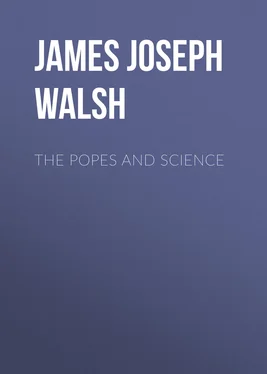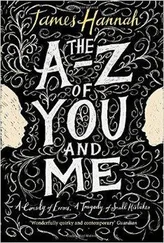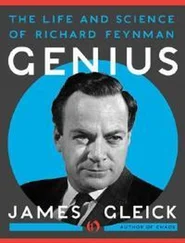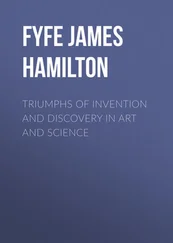James Walsh - The Popes and Science
Здесь есть возможность читать онлайн «James Walsh - The Popes and Science» — ознакомительный отрывок электронной книги совершенно бесплатно, а после прочтения отрывка купить полную версию. В некоторых случаях можно слушать аудио, скачать через торрент в формате fb2 и присутствует краткое содержание. Жанр: foreign_prose, foreign_religion, foreign_antique, на английском языке. Описание произведения, (предисловие) а так же отзывы посетителей доступны на портале библиотеки ЛибКат.
- Название:The Popes and Science
- Автор:
- Жанр:
- Год:неизвестен
- ISBN:нет данных
- Рейтинг книги:4 / 5. Голосов: 1
-
Избранное:Добавить в избранное
- Отзывы:
-
Ваша оценка:
- 80
- 1
- 2
- 3
- 4
- 5
The Popes and Science: краткое содержание, описание и аннотация
Предлагаем к чтению аннотацию, описание, краткое содержание или предисловие (зависит от того, что написал сам автор книги «The Popes and Science»). Если вы не нашли необходимую информацию о книге — напишите в комментариях, мы постараемся отыскать её.
The Popes and Science — читать онлайн ознакомительный отрывок
Ниже представлен текст книги, разбитый по страницам. Система сохранения места последней прочитанной страницы, позволяет с удобством читать онлайн бесплатно книгу «The Popes and Science», без необходимости каждый раз заново искать на чём Вы остановились. Поставьте закладку, и сможете в любой момент перейти на страницу, на которой закончили чтение.
Интервал:
Закладка:
None of the other sciences allied to medicine were hampered in any way, but, on the contrary, fostered and encouraged; and the devoted students of science were prominent churchmen, some of whom were honored with the title of saint after their deaths. In spite of declarations to the contrary, chemistry was not forbidden by a Papal decree or other document, though the practice of certain alchemists of pretending to make gold and silver out of baser metals and thus cheating people was condemned, just as we condemn the corresponding practice of selling "gold bricks" at the present time. As will be made very clear, the Pope who issued the decree that forbids such sharp practices was a distinguished and discriminating patron of medical education at the beginning of the fourteenth century, doing more for it than any ruler for three centuries after his time; yet in doing so he was only carrying out the policy which had been maintained by the Popes before his time and was to continue ever afterwards.
Strange as it may appear when we recall how much has been said with regard to Papal, and Church, and theological opposition to science, the story that we have just told with regard to the Papal relations to medicine and medical schools must be retold with regard to science in every department, and the scientific studies at the great medieval universities. Most people will find it even more difficult to accept this than to reach a calm consideration of the Papal relations to the medical sciences. Medicine is supposed to be the sort of practical subject that, in spite of prejudice, the ecclesiastical authorities could not neglect and were not able to suppress. Science in general, however, is supposed to be so distinctly opposed to what was at least considered religious truth, that the Church could not very well do anything else than prevent its development, or at least hamper its progress to such an extent that it was only with the lifting of the ecclesiastical incubus in our own day, that any great scientific advances came in the physical sciences. This is an entirely false impression emphasized by the ridiculous intolerance of writers who knew practically nothing of the real history of science in the Middle Ages, wrote their own prejudices large into the story of the times, and did great positive harm to the cause of truth by a pretense of knowledge they did not have, but which so many confidingly believed them to possess.
But it will at once be said, what of Galileo? Does not his case show the anti-scientific temper of churchmen? Nearly half a century ago, Cardinal Newman in his Apologia characteristically observed that this very case sufficed to prove that the Church did not set herself against scientific progress, for this is the "one stock argument" to the contrary, "the exception which proves the rule." Commenting upon the Galileo incident, Professor Augustus de Morgan, in his article on the Motion of the Earth in the English Encyclopedia, has expressed exactly the same conclusion. He is an authority not likely to be suspected of Catholic sympathy. He says:
"The Papal power must upon the whole have been moderately used in matters of philosophy, if we may judge by the great stress laid on this one case of Galileo. It is the standing proof that an authority which has lasted a thousand years was all the time occupied in checking the progress of thought(!) There are certainly one or two other instances, but those who make most of the outcry do not know them."
There is no doubt that Galileo was prosecuted by the Roman inquisition on account of his astronomical teachings. We would be the last to deny that this was a deplorable mistake made by persons in ecclesiastical authority, who endeavored to make a Church tribunal the judge of scientific truth, a function altogether alien to its character which it was not competent to exercise. The fact that this was practically the only time that this was done serves to show that it was an unfortunate incident, but not a policy. The mistake has been to conclude that this was a typical case–one of many, more flagrant than the others. This single incident has indeed made it impossible that anything of the same kind should ever occur again. It was rather because of the way in which Galileo urged his truths than because of the truths themselves that he was condemned. Even Professor Huxley, in a letter to Professor St. George Mivart, November 12th, 1885, said: "I gave some attention to the case of Galileo when I was in Italy, and I arrived at the conclusion that the Pope and the College of Cardinals had rather the best of it."
Before as well as after Galileo's time scientific research was carried on ardently in the universities, especially in Italy. In the chapter on Science at the Medieval Universities, we call attention to the many advances then made with regard to scientific questions in which the world is very much interested at the present time. A hundred years before Galileo's time Copernicus went down to Italy to study astronomy and medicine, and when his book was published it was dedicated to a Pope. Copernicus himself was a faithful churchman all his life, came near being made a bishop once, and kept the diocese in which he lived, and in which his personal friend was bishop, in the fold of the Church in spite of Luther and the religious revolt all around it in Germany. One of the great scientists of the seventeenth century whose name is stamped deeply on the history of science, Father Kircher, the Jesuit, was invited to Rome the very year after Galileo's condemnation, and for thirty years continued to experiment and write in all branches of science, not only with the approbation of his own order, the Jesuits, which helped him in every way by the collection of specimens for his museum, but also with the hearty good will of many cardinals who were his personal friends, and with the constant patronage of the Popes, whose generous liberality enabled him to make Rome the greatest centre of scientific interest during this century.
At this time and during the preceding century the Roman University had the greatest medical school in the world. The names of its professors during the preceding century need only be mentioned in order to emphasize this. They include such distinguished men as Eustachius and Varolius, whose names are forever enshrined in the history of anatomy; Columbus, who discovered and described the lesser or pulmonary circulation half a century before Harvey's publication with regard to the general circulation; Caesalpinus, to whom the Italians attribute the discovery of the greater circulation before Harvey. In the next century Malpighi was tempted to come to Rome to teach at the Papal University, and the great Father of Comparative Anatomy ended his days in the Papal capital, amidst the friendship of all the high ecclesiastics and with the social intimacy of the Pope. From the beginning of the sixteenth century Bologna is a Papal city, but its medical school, far from declining after it came under Papal jurisdiction, was even more brilliant than before, and soon came even to outshine its previously successful rival, Padua.
What we would say then, is that the story of the supposed opposition of the Church and the Popes and the ecclesiastical authorities to science in any of its branches, is founded entirely on mistaken notions. Most of it is quite imaginary. Much of it is due to the exaggeration of the significance of the Galileo incident. Only those who know nothing about the history of medicine and of science continue to harbor it. That Dr. White's book, contradicted as it is so directly by all our serious histories of medicine and of science, should have been read by so many thousands in this country, and should have been taken seriously by educated men, physicians, teachers, and even professors of science who want to know the history of their own sciences, only shows how easily even supposedly educated men may be led to follow their prejudices rather than their mental faculties, and emphasizes the fact that the tradition that there is no good that can possibly come out of the Nazareth of the times before the reformation, still dominates the intellects of many educated people who think that they are far from prejudice and have minds perfectly open to conviction.
Читать дальшеИнтервал:
Закладка:
Похожие книги на «The Popes and Science»
Представляем Вашему вниманию похожие книги на «The Popes and Science» списком для выбора. Мы отобрали схожую по названию и смыслу литературу в надежде предоставить читателям больше вариантов отыскать новые, интересные, ещё непрочитанные произведения.
Обсуждение, отзывы о книге «The Popes and Science» и просто собственные мнения читателей. Оставьте ваши комментарии, напишите, что Вы думаете о произведении, его смысле или главных героях. Укажите что конкретно понравилось, а что нет, и почему Вы так считаете.












